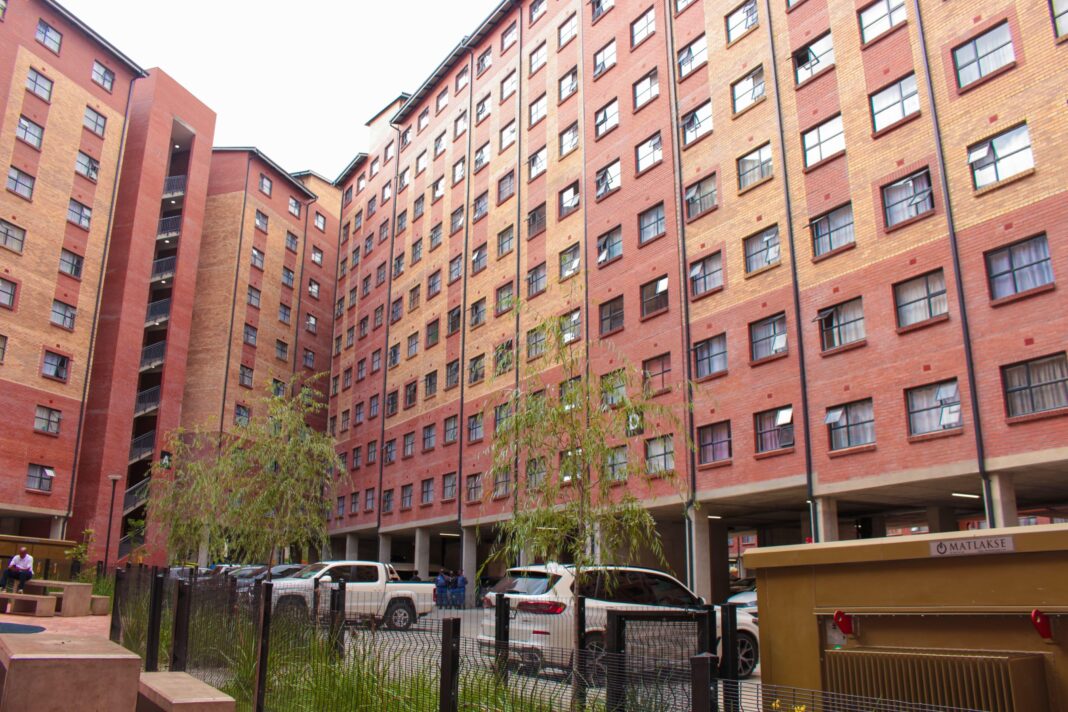By Thapelo Molefe
The Human Settlements Department is moving full steam ahead with its housing policy that focuses on service stands and social rental housing rather than traditional RDP houses.
Speaking at the handover of a social housing project in Midrand in Gauteng on Tuesday, Human Settlements Minister Thembisile Simelane told Inside Education that the initiative aimed to provide well-located, high-quality housing while addressing urban restructuring and reducing spatial inequalities.
“Our people prefer to live where convenience is. They need access to good schools, workplaces and social facilities without having to travel long distances. That is why we are prioritising land that is closer to economic opportunities,” she said.
To implement this approach, Simelane said 2400 hectares of land had been allocated by the Department of Public Works for housing developments across the country.
While townships such as Soweto and Tembisa would continue to receive housing projects, she said the government was prioritising strategically located land near business hubs.
“We are moving away from the old four-room RDP model because, after 30 years, we have learned that many of those houses are demolished and rebuilt. Instead, we will provide serviced stands so that people can build homes that meet their specific needs,” Simelane explained.
The minister noted that provinces like Mpumalanga and Limpopo were leading in service stand allocations, and efforts were underway to expand this model to other regions, including the Eastern Cape.
However, the government remained committed to providing free housing for vulnerable groups, including persons living with disabilities, the elderly and child-headed households.
She said that with over 4700 squatter camps in South Africa and more emerging, the government was increasing efforts to provide structured housing solutions.
The focus was on social rental housing, homeownership opportunities and reducing spatial inequalities that forced people to live far from work and essential services.
Another key aspect of the plan is job creation, particularly for young people. By partnering with private businesses, the department aimed to ensure that new housing developments generated employment opportunities and reduced dependency on government housing allocations.
“We want our young people to be employed so that they can afford to build their own homes rather than waiting for government handouts. This is why we are partnering with businesses to create job opportunities within housing projects,” Simelane said.
“Our policy is shifting from a simple handover model to a long-term partnership with business. This will ensure the sustainable provision of housing and create communities that thrive.”
As part of the Medium-Term Development Plan 2024-2029, the department aims to deliver 15,000 social housing units over five years.
INSIDE POLITICS

